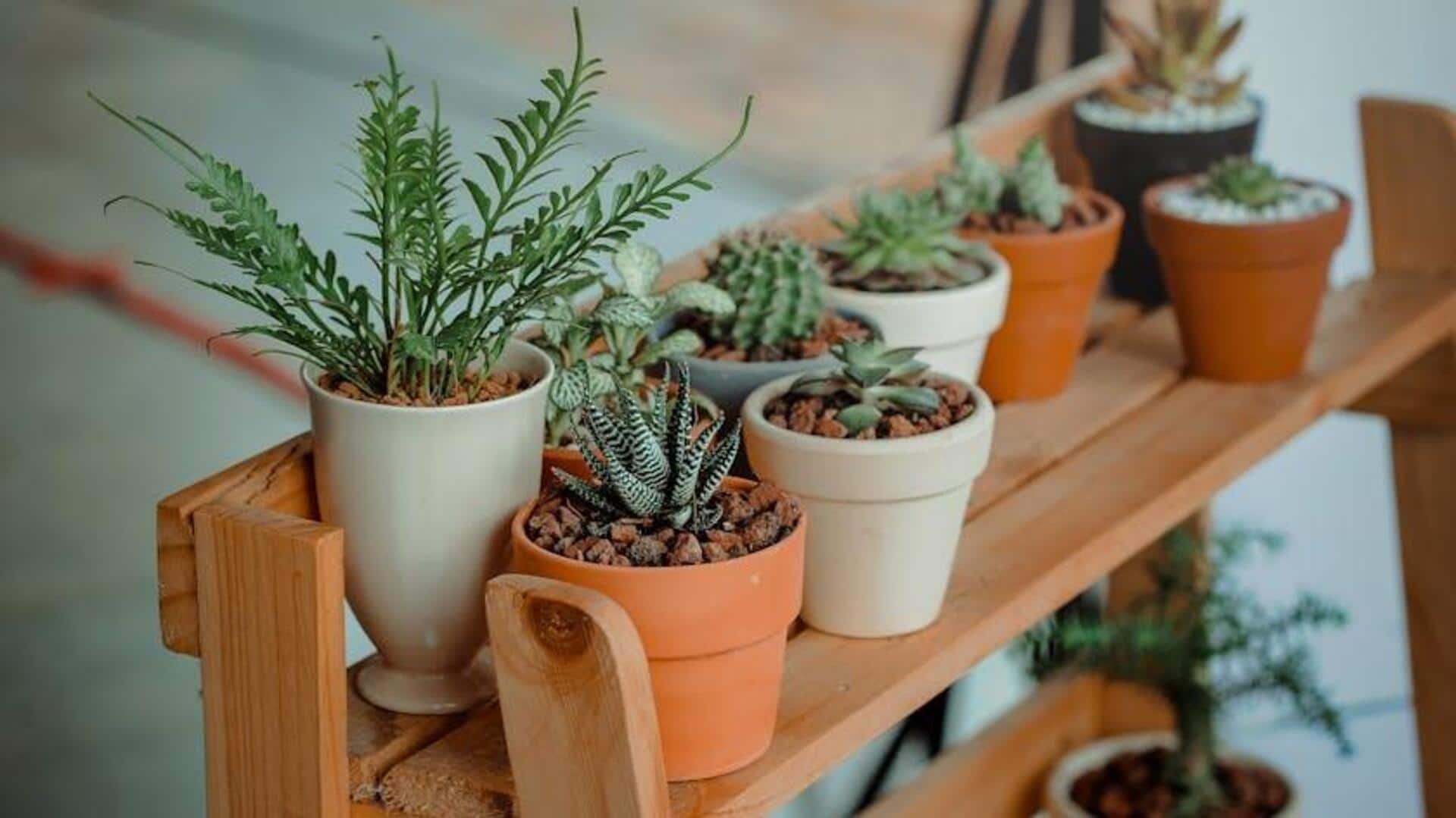
Plant parenting 101: Avoid these 5 common mistakes
What's the story
While caring for plants is rewarding, it often comes with its own set of challenges. Many plant enthusiasts unknowingly make common mistakes that can hinder the growth and health of the plants. Understanding these pitfalls and learning how to avoid them is crucial to maintaining a thriving indoor or outdoor garden. Here are five frequent plant care mistakes and easy solutions to overcome them.
Watering issues
Overwatering plants
One of the most common mistakes we make while caring for plants is overwatering them. Most assume more the water, healthier the plants, but that's not how it works. Overwatering can result in root rot, which eventually damages the plant. To avoid this, ensure soil dries between watering sessions. Check top inch of soil; if it's dry, it's time to water again. Using pots with drainage holes also prevents excess water accumulation.
Light requirements
Insufficient light exposure
Plants require ample light for effective photosynthesis. Keeping them in poorly lit areas can stunt their growth or cause leaves to yellow and drop off. To avoid this, research your plant's light requirements and place it accordingly—whether it needs direct sunlight or thrives in low-light conditions. Consider rotating your plants periodically so all sides get equal exposure.
Soil health
Ignoring soil quality
The quality of soil also matters a lot for plant health, but is often ignored by many gardeners. Using poor-quality soil can limit roots' growth and nutrients absorption. Opt for potting mixes suited for your kind of plant- cacti need different soil from ferns- and if you want, you can add organic matter, like compost, to nourish the soil even more.
Pest management
Neglecting pest control
Pests like aphids, spider mites, and whiteflies can wreak havoc on plants if left unchecked. Regularly inspect your plants for signs of infestation like discolored leaves or webbing under foliage. If pests are present, use natural remedies like neem oil or insecticidal soap sprays instead of harsh chemicals that could harm beneficial insects.
Nutrient supply
Inconsistent fertilization practices
Fertilizing inconsistently or using inappropriate fertilizers can lead to nutrient deficiencies or toxicities in plants over time. Follow recommended guidelines based on each plant's needs regarding frequency and type of fertilizer used—some may require monthly feeding, while others only need seasonal applications—and always dilute liquid fertilizers according to instructions before applying them directly onto roots.